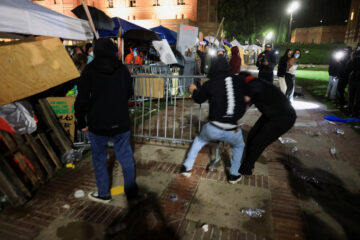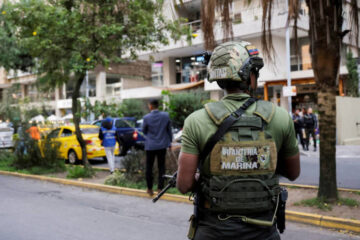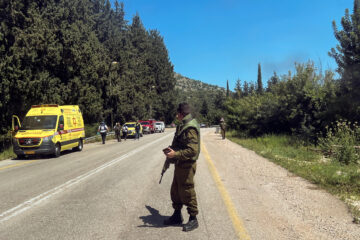Zelenskiy urges Russians to ‘go home’ as Ukraine presses offensive in south
 View of damage after the shelling of a private residential complex, in Mykolaiv, Ukraine, August 29, 2022 in this picture obtained from social media. SES Ukraine/via REUTERS
View of damage after the shelling of a private residential complex, in Mykolaiv, Ukraine, August 29, 2022 in this picture obtained from social media. SES Ukraine/via REUTERSUkrainian President Volodymyr Zelenskiy has urged Russian troops to flee for their lives as his forces launched an offensive near the city of Kherson, saying Ukraine’s military were taking back their territory though Russia said the assault had failed.
Ukraine’s offensive in the south comes after weeks of a stalemate in a war that has killed thousands, displaced millions, destroyed cities and caused a global energy and food crisis amid unprecedented economic sanctions.
It has also fuelled worries of a radiation disaster being triggered by shelling of the south Ukraine Zaporizhzhia nuclear power plant, where Russian authorities on Tuesday reported artillery strikes near a spent fuel storage building.
Zelenskiy, in his nightly address late on Monday, vowed that Ukrainian troops would chase the Russian army “to the border”.
“If they want to survive – it’s time for the Russian military to run away. Go home,” he said.
“Ukraine is taking back its own,” Zelenskiy said.
Oleksiy Arestovych, a senior adviser to Zelenskiy, commenting on the offensive in the Kherson region, said Russian defences had been “broken through in a few hours”.
Ukrainian forces were shelling ferries that Russia was using to supply a pocket of territory on the west bank of the Dnipro river in the Kherson region, he added.
Britain’s defence ministry said Ukrainian forces had increased their artillery fire across the south and their long-range precision strikes were disrupting Russian resupplies.
Ukraine’s Suspilne public broadcaster reported explosions in the Kherson area on Tuesday and city residents reported in social media posts gunfire and explosions but said it was not clear who was firing.
Ukraine’s military general staff, in an early Tuesday update, reported clashes in various parts of the country but gave no information on the Kherson offensive.
‘FAILED’
Russia’s defence ministry said Ukrainian troops had attempted an offensive in the Mykolaiv and Kherson regions but sustained significant casualties, RIA news agency reported.
The “enemy’s offensive attempt failed miserably”, it said.
But a Ukrainian barrage of rockets left the Russian-occupied town of Nova Kakhovka without water or power, officials at the Russian-appointed authority told RIA news agency.
Reuters could not verify the battlefield reports.
Russian shelling of the port city of Mykolaiv, which has remained in Ukrainian hands despite repeated Russian bombardments, killed at least two people, wounded some 24 and wiped out homes, city officials and witnesses said on Monday.
A Reuters correspondent reported a strike hit a family home directly next to a school, killing one woman.
The owner of the property, Olexandr Shulga, said he had lived there his entire life and that his wife died when she was buried in debris. “It hit and the shockwave came. It destroyed everything,” he said.
Russia invaded Ukraine on Feb. 24 to wage what it says is a “special military operation” to rid Ukraine of nationalists and protect Russian-speaking communities. Ukraine and its allies describe it as an unprovoked war of aggression.
The conflict, the biggest attack on a European state since 1945, has largely settled into a war of attrition, mainly in the south and east, marked by artillery bombardments and air strikes. Russia captured swathes of the south early on.
IAEA NUCLEAR MISSION
The Zaporizhzhia nuclear power plant in Ukraine’s south, captured by Russian troops in March but still manned by Ukrainian staff, has been a hotspot in the conflict with both sides trading blame for shelling in the vicinity.
Russian-installed authorities accused Ukrainian troops of firing two shells that exploded near a spent fuel storage building at the plant, TASS news agency reported. There was no immediate comment from the Ukrainian side.
A mission from the International Atomic Energy Agency (IAEA) is headed to the facility, Europe’s largest nuclear plant, and is due later this week to inspect and assess any damage.
Led by IAEA chief Rafael Grossi, the mission will evaluate working conditions and check safety and security systems, the Vienna-based organisation said.
It will also “perform urgent safeguards activities”, a reference to keeping track of nuclear material.
SOURCE: REUTERS









